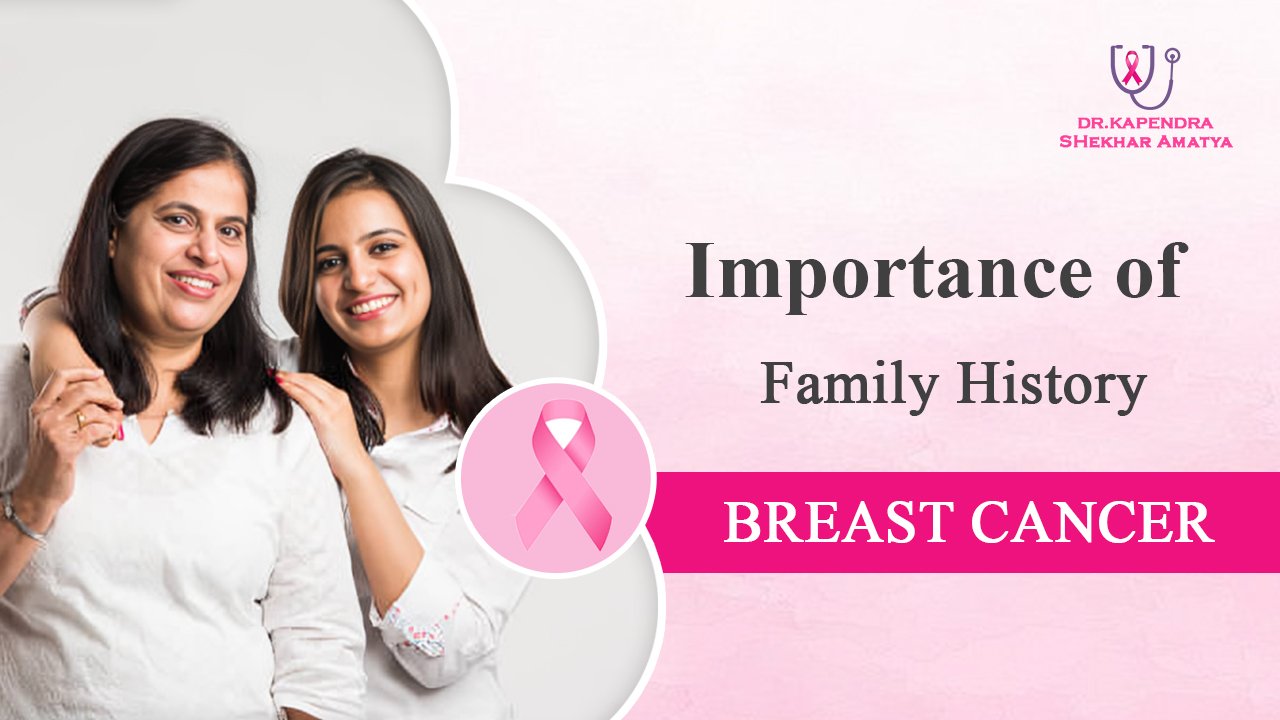Introduction
Breast cancer remains a significant health concern worldwide, including in Nepal. Understanding the Importance of Family History in Breast Cancer is crucial for prevention and early detection. Dr. Kapendra Shekhar Amatya, a leading breast cancer surgeon in Nepal, emphasizes the pivotal role family history plays in managing breast cancer risk.
Understanding Breast Cancer
Breast cancer occurs when cells in the breast grow uncontrollably. The Importance of Family History in Breast Cancer lies in its ability to help identify individuals at higher risk, facilitating early intervention and prevention.
Genetic Factors
BRCA Mutations
Mutations in BRCA1 and BRCA2 genes significantly increase the risk of breast cancer. Recognizing the Importance of Family History in Breast Cancer allows for genetic testing and monitoring, particularly for those with a known family history.
Hereditary Syndromes
Hereditary syndromes such as Li-Fraumeni and Cowden increase breast cancer risk. Understanding family history aids in identifying these syndromes and taking preventive measures.
Family History as a Risk Factor
First-Degree Relatives
Having a first-degree relative with breast cancer doubles a woman’s risk, highlighting the Importance of Family History in Breast Cancer. Knowing one’s family medical history is crucial for early detection and intervention.
Second-Degree Relatives
A family history of breast cancer in second-degree relatives also raises risk levels. The Importance of Family History in Breast Cancer includes understanding the broader familial connections to assess risk accurately.
Early Detection Importance
Regular Screenings
For those with a family history, early and regular screenings are essential. The Importance of Family History in Breast Cancer guides healthcare providers in recommending appropriate screening schedules.
Genetic Testing
Genetic testing for BRCA and other mutations is vital. Dr. Kapendra Shekhar Amatya, a leading breast cancer surgeon in Nepal, advocates for genetic counseling to help interpret test results and plan preventive strategies.
Preventive Measures
Lifestyle Changes
Maintaining a healthy lifestyle by exercising, managing weight, and avoiding smoking can reduce breast cancer risk. The Importance of Family History in Breast Cancer includes making informed lifestyle choices.
Prophylactic Surgery
High-risk women might consider prophylactic mastectomy or oophorectomy. Consulting with a cancer doctor like Dr. Amatya can help evaluate these options based on family history.
Chemoprevention
Medications like tamoxifen and raloxifene can lower breast cancer risk. The Importance of Family History in Breast Cancer is reflected in the tailored preventive measures that a cancer doctor can recommend.
Psychological Impact
Emotional Support
A family history of breast cancer can cause emotional stress. Support groups and counseling are essential for mental well-being, highlighting the Importance of Family History in Breast Cancer.
Coping Strategies
Effective coping strategies, such as mindfulness and stress management, are crucial. Understanding the Importance of Family History in Breast Cancer includes addressing the psychological aspects.
Conclusion
Recognizing the Importance of Family History in Breast Cancer is vital for effective prevention, early detection, and treatment. Dr. Kapendra Shekhar Amatya, a leading breast cancer surgeon in Nepal, offers expert care and guidance for those at risk. Staying informed and proactive about family history can significantly reduce breast cancer risk.


